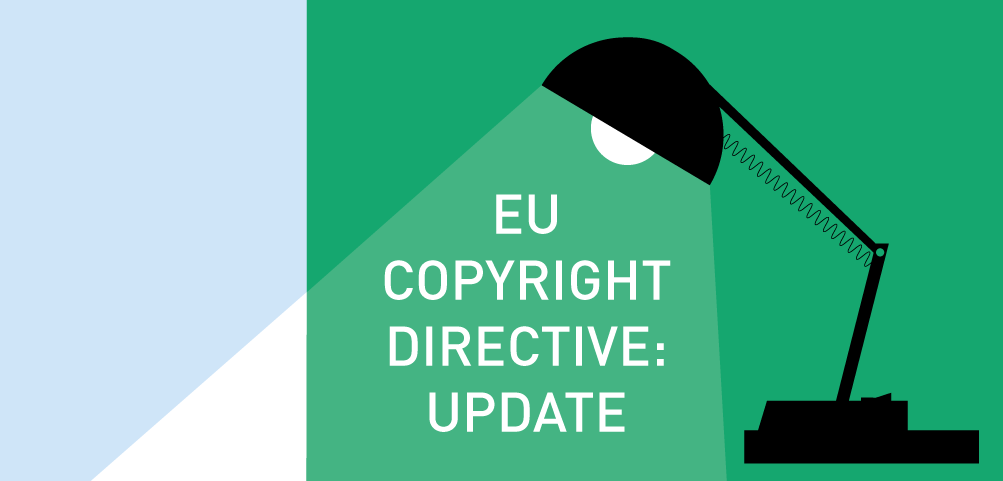An ALCS members’ guide to the EU Copyright Directive

Although it first appeared on paper in September 2016, the origins of the new EU Copyright Directive can be found a decade earlier when the popularisation of online sharing sites began to stress test a set of copyright rules forged at the turn of the century.
Notably, the unfair advantage enjoyed by content-sharing platforms, such as YouTube, from the availability of unlicensed copyright material on their sites led the music and other creative industries to try and address this ‘value gap.’ A European project aimed at recalibrating the business models of powerful, US corporations was always going to be tricky. Added to this, the further challenge of resolving a raft of other emergent copyright-related issues meant that enacting the Copyright in the Digital Single Market Directive was always likely to be an uphill struggle, and so it proved.
The lobbying campaign against the Directive was, euphemistically-speaking, thorough. MEPs received thousands of automatically generated emails, YouTubers were encouraged to peddle doom to their youthful fanbases, headlines appeared warning of the death of the Internet, Wikipedia imposed temporary shutdowns. Despite this, following a protracted process of negotiation and amendment, a compromise text was voted through by the European Parliament and subsequently approved by the European Council, meaning the directive will become part of EU law in the coming weeks.
The following is a brief, high-level summary of those elements of the directive that are likely to be most relevant to ALCS members:
Article 5 (educational use) mandates a copyright exception permitting the use of extracts of works for teaching purposes but also, crucially for ALCS members, allows for complementary licences that compensate authors and other rightsholders.
Article 12 (collective licensing) provides support in EU law for UK statutory mechanisms underpinning the existing ‘blanket licences’ issued to various sectors by the Copyright Licensing Agency (CLA) from which ALCS receives significant revenues for authors.
Article 15 (press publishers’ right) one of the more controversial elements of the Directive, this provides new rights for press publishers when their works are used by commercial online platforms, such as news aggregation sites. While authors are to receive an appropriate share of any revenues derived from licensing these new rights, this is subject to contractual terms with publishers.
Article 16 (compensation sharing) acknowledges that when an author transfers or licenses rights to a publisher by contract the publisher is entitled to share any compensation due under any copyright exceptions applicable to those rights. This should not result in significant changes for UK authors as CLA educational-use licence fees are already subject to agreed splits between authors and publishers and the PLR scheme is not varied by this article so as to extend payments to publishers.
Article 17 (liability of online service providers) is the most controversial aspect of the Directive and requires that online content-sharing platforms should use their ‘best efforts’ to either seek licences from copyright owners covering works uploaded by users or ensure that unlicensed works are removed and not re-uploaded. The intended focus of this article is large, commercial sites and it does not permit general monitoring of uploads nor does it restrict the legitimate use of works under copyright exceptions, such as the creation of Internet memes for the purposes of parody or pastiche.
The article encourages dialogue between platforms and rightsholders to establish best practices to ensure that the processes underlying licensing and take-downs operate in a fair and transparent manner.
Article 18 (authors’ remuneration) establishes the principle that authors should receive appropriate and proportionate remuneration when they transfer their rights to third parties to exploit on their behalf. This obligation may be met through lump-sum payments but only in exceptional cases.
Article 19 (transparency) requires that authors receive from a contractual counterpart, such as a publisher or producer, ‘regular and comprehensive’ information on the use of their works and the resulting revenues.
Article 20 (payment adjustment) allows authors to claim ‘additional, appropriate and fair remuneration’ from a contractual party when the original deal struck provides for disproportionately low returns when compared to total subsequent revenues.
Article 21 (dispute resolution) provides that disputes arising in relation to the rules set out in Articles 19 and 20 may be submitted to a dispute resolution process by the author or by a representative body on their behalf.
Article 22 (revocation) permits an author to revoke a transfer or licence of rights granted to a contractual party if, following notice, that party continues to fail to exploit the work.
The new Directive includes several positive elements that support authors’ rights and their ability to secure fair remuneration for the use of their works. What is less certain, given continued uncertainties around the terms and timing of Brexit, is the extent to which the UK will be obliged to incorporate the directive into domestic law. ALCS and other author organisations will be working hard on your behalf to press the Government to implement the Directive at the earliest opportunity.
